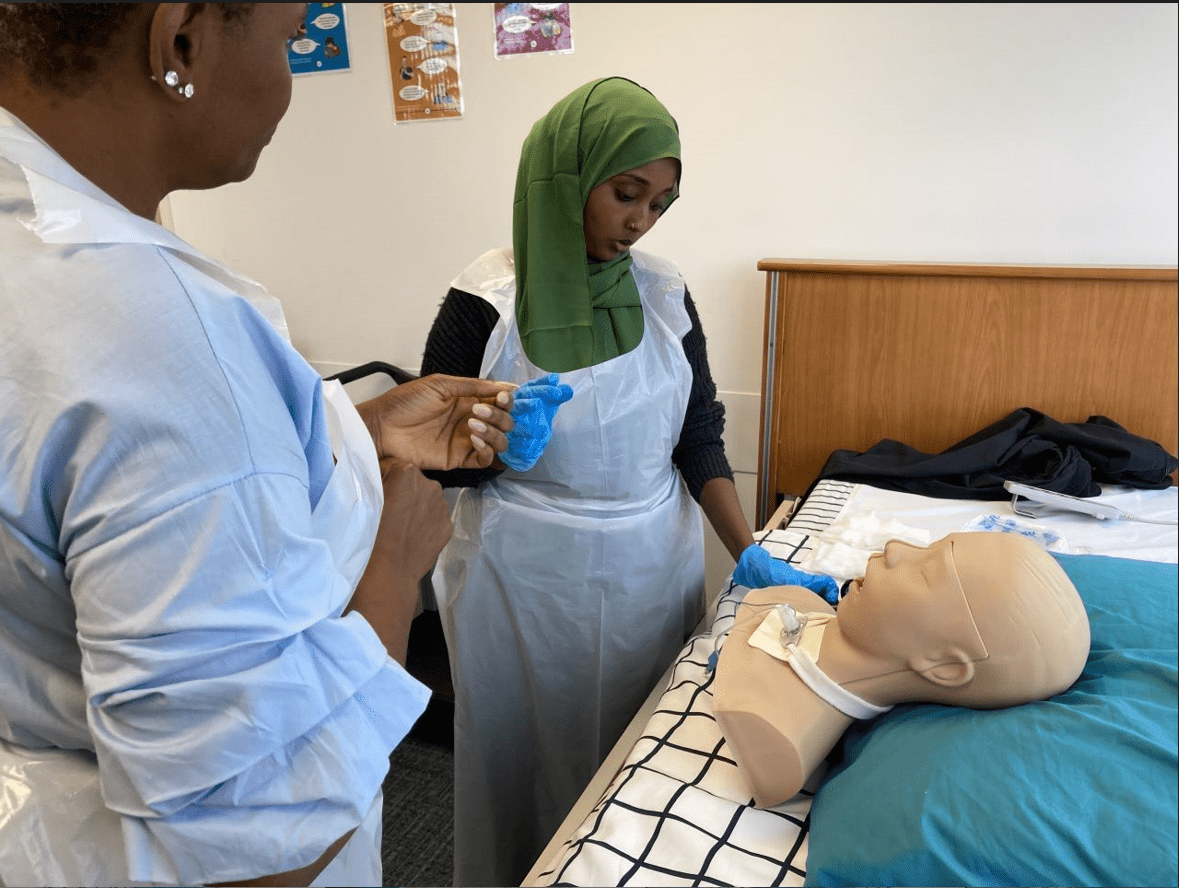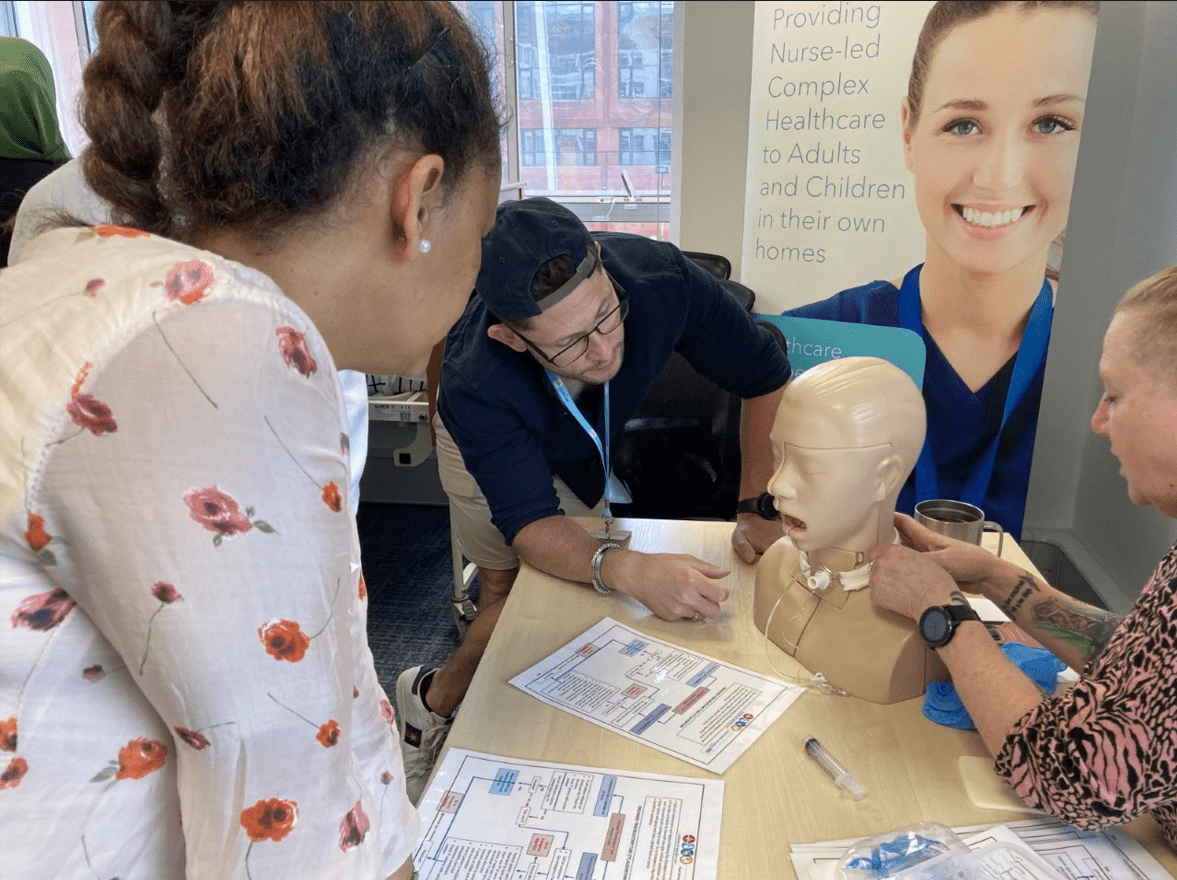F's Story
CONFIDENCE AND CONTINUITY ARE ESSENTIAL FOR CHILDREN WITH COMPLEX HEALTH NEEDS
F is a young boy who started to receive care from HFH at the age of 6 after he was diagnosed with a rare genetic neuromuscular disorder that primarily affects skeletal muscles. People with this condition have muscle weakness (myopathy) and decreased muscle tone, which can disrupt normal bone development leading to fragile bones. The muscles that F uses to breath are significantly affected, as a result he requires support with breathing from a ventilator via a tracheostomy. Due to his condition F is unable to meet his nutritional intake orally and relies on enteral feeds to meet his nutritional and hydration requirements.

F’s health needs include: Tracheostomy Care & Ventilation via Tracheostomy, Controlled Trache Changes, Paed Enteral Feeding, Medication Administration, Nasopharyngeal Suctioning, Nebulisation (Aerosol Therapy), Oral Suctioning, Oxygen Therapy. The commissioned package structure is 12 hour waking night support, 7 days a week and daytime support Monday to Friday with the family taking parental responsibility for daytime care over weekends.
F’s family were initially sceptical that nurse led and delegated care was appropriate to deliver the daily care that F required. These anticipated anxieties were heightened due to their own background as trained medical professionals. Our Paediatric Nurse Case Manager (PNCM) worked in partnership with F’s family and service commissioners to structure a package of care to meet his developmental and complex needs. Our PNCM explained our robust in-house training and assessment processes and how the care team would be assessed as competent to meet F’s individualised health needs. Clear communication was essential to trust building.

The family agreed with our process of building a consistent ‘core’ team of an appropriate number of clinically competent care staff that live local to the family home. F is non-verbal and this core team was key to understand F’s body language, facial expressions, and sounds while building rapport and familiarity. The size of the team also allowed for cross-cover in the event of sickness and leave, to reduce the need to introduce a carer that F would not know.
Our PNCM regularly visits the home to oversee all aspects of the current care package. They work alongside the core care team and support new carers to learn the care routine detailed in their care plan. Our PNCM also works closely with other professionals in the community multidisciplinary team. Collectively we work as one team and regularly review the care being delivered to meet F’s requirements which means he has the best chance to achieve his goals and remain comfortable/safe at home.
Over the last 6 years we have provided over 45000hrs of complex care to F which has flexed when required in response identified changes in F’s care and to facilitate periods of respite. He continues to live safely in his family home with parents and pet dog but has enjoyed short breaks to the countryside on special occasions, with support from our carers. He is currently enjoying being home schooled using assistive technology, which he uses to express how he feels and in his free time he enjoys watching videos on his tablet.






